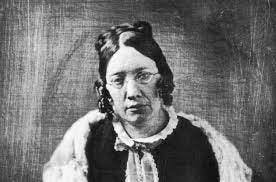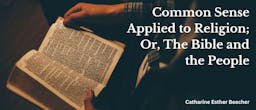
Too Long; Didn't Read
It is the power of choice which raises man to the dignity of an intellectual and moral being. Without this principle, he would be a creature of mere impulses and instincts. He would possess susceptibilities of happiness to be excited, and intellect to devise and discover the modes of securing enjoyment; but without governing principle, the soul would be led captive with each successive desire, or be the sport of chances whenever conflicting desires were awakened. He who formed man in his own perfect image left not his work without this balance-power to regulate the complicated springs of so wonderful an existence. Man is now not only the image of his Creator as lord of this lower world, but is, like him, the lord and master of his own powers. It has been shown that the constitution, both of mind and of the world, is such that it is impossible in the nature of things to gain every object which is the cause of enjoyment. There is a constant succession of selections to be made between different modes of securing happiness. A lesser good is given up for a greater, or some good relinquished altogether to avoid some consequent pain. Often, also, some painful state of mind is sought as the means of securing some future good, or of avoiding some greater evil. Thus men endure want, fatigue, and famine to purchase wealth. {150}Thus the nauseous draught will be swallowed to avoid the pains of sickness; and thus the pleasures of domestic affection will be sacrificed to obtain honor and fame. The whole course of life is a constant succession of such decisions between different modes of securing happiness and of avoiding pain.



RELATED STORIES





L O A D I N G
. . . comments & more!
如有侵权请联系:admin#unsafe.sh